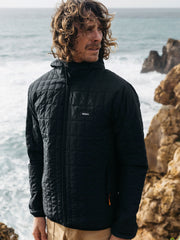Like many others within society, my connection to the sea has persevered thanks to the positive experiences I have had in the past and a longing to re-live and re-enjoy them. So, it seems a poignant vision then, as we enjoy spring and look to summer, to connect with sea as if it were the first time all over again.
This vision is central to how my connection to seagrass meadows was conceived. As a child and teenager, I had come into contact with seagrass on numerous occasions, but never once acknowledged it. I’d no doubt spent family holidays in Greece and Spain snorkelling in meadows of Posidonia oceanica with my father only to ignore this humble plant in favour of the fauna that depend on it. Fast forward a few years, and even through university I was fixated on sharks and coral reefs - seagrass was just not on my radar. Despite a love and passion for all things ocean, I’d overlooked this unlikely habitat that would go on to underpin my life’s work to date.
As with all great narratives, then came “the big reveal” - my exposure to this previously unseen yet key character in our coastal seascape. A holiday to the Caribbean opened my eyes to this underwater savanna that was brimming with life of all shapes and sizes. While I’d had the same experience on multiple occasions in the past (in Greece and Spain as a teenager), it took fresh eyes to really awaken me to how important seagrasses are, and it’s in the tropics where this really became evident. I’ve spent the better part of Project Seagrass’ existence working on projects in the tropics, from remote archipelagos in Myanmar, to tourist hotspots in Mexico. No matter where I’ve been, conversations with communities have shed new light on the importance of seagrass and how people value it. These conversations make me appreciate seagrass, and the sea, for multiple new reasons.


















































































